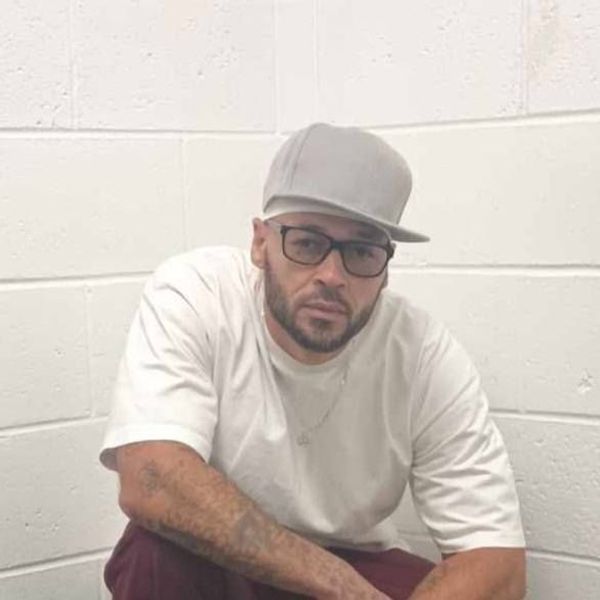Ohio Delivers 15-Minute Death to Man "Not Entitled to a Pain-Free Execution"
Convicted killer grunts and gasps for air after experimental lethal injection
During the more than "fifteens minutes it appeared to take him to die," the man Ohio executed on Thursday "made several loud snorting or snoring sounds" and "appeared to gasp" for air before succumbing to a controversial narcotic injection never before tried.
According to the Associated Press, the killing of convicted murderer Dennis McGuire was "one of the longest executions since Ohio resumed capital punishment in 1999" which came after unsuccessful efforts by his lawyers to challenge use of the new drug combination.
As AP reports: "McGuire's lawyers had argued that he was at substantial risk of a medical phenomenon known as air hunger, which would cause him to experience terror as he strains to catch his breath."
Defending the state's right to use the drugs, the prosecutor fighting an appeal by his lawyers told a court judge that McGuire was "not entitled to a pain-free execution." The judge agreed in his ruling and said that because the state could not obtain the traditional drug used for lethal injections, prison officials were "free to innovate."
The Supreme Court on Wednesday had refused McGuire's final appeal for a stay of execution.
_____________________________________
An Urgent Message From Our Co-Founder
Dear Common Dreams reader, The U.S. is on a fast track to authoritarianism like nothing I've ever seen. Meanwhile, corporate news outlets are utterly capitulating to Trump, twisting their coverage to avoid drawing his ire while lining up to stuff cash in his pockets. That's why I believe that Common Dreams is doing the best and most consequential reporting that we've ever done. Our small but mighty team is a progressive reporting powerhouse, covering the news every day that the corporate media never will. Our mission has always been simple: To inform. To inspire. And to ignite change for the common good. Now here's the key piece that I want all our readers to understand: None of this would be possible without your financial support. That's not just some fundraising cliche. It's the absolute and literal truth. We don't accept corporate advertising and never will. We don't have a paywall because we don't think people should be blocked from critical news based on their ability to pay. Everything we do is funded by the donations of readers like you. Will you donate now to help power the nonprofit, independent reporting of Common Dreams? Thank you for being a vital member of our community. Together, we can keep independent journalism alive when it’s needed most. - Craig Brown, Co-founder |
During the more than "fifteens minutes it appeared to take him to die," the man Ohio executed on Thursday "made several loud snorting or snoring sounds" and "appeared to gasp" for air before succumbing to a controversial narcotic injection never before tried.
According to the Associated Press, the killing of convicted murderer Dennis McGuire was "one of the longest executions since Ohio resumed capital punishment in 1999" which came after unsuccessful efforts by his lawyers to challenge use of the new drug combination.
As AP reports: "McGuire's lawyers had argued that he was at substantial risk of a medical phenomenon known as air hunger, which would cause him to experience terror as he strains to catch his breath."
Defending the state's right to use the drugs, the prosecutor fighting an appeal by his lawyers told a court judge that McGuire was "not entitled to a pain-free execution." The judge agreed in his ruling and said that because the state could not obtain the traditional drug used for lethal injections, prison officials were "free to innovate."
The Supreme Court on Wednesday had refused McGuire's final appeal for a stay of execution.
_____________________________________
During the more than "fifteens minutes it appeared to take him to die," the man Ohio executed on Thursday "made several loud snorting or snoring sounds" and "appeared to gasp" for air before succumbing to a controversial narcotic injection never before tried.
According to the Associated Press, the killing of convicted murderer Dennis McGuire was "one of the longest executions since Ohio resumed capital punishment in 1999" which came after unsuccessful efforts by his lawyers to challenge use of the new drug combination.
As AP reports: "McGuire's lawyers had argued that he was at substantial risk of a medical phenomenon known as air hunger, which would cause him to experience terror as he strains to catch his breath."
Defending the state's right to use the drugs, the prosecutor fighting an appeal by his lawyers told a court judge that McGuire was "not entitled to a pain-free execution." The judge agreed in his ruling and said that because the state could not obtain the traditional drug used for lethal injections, prison officials were "free to innovate."
The Supreme Court on Wednesday had refused McGuire's final appeal for a stay of execution.
_____________________________________

